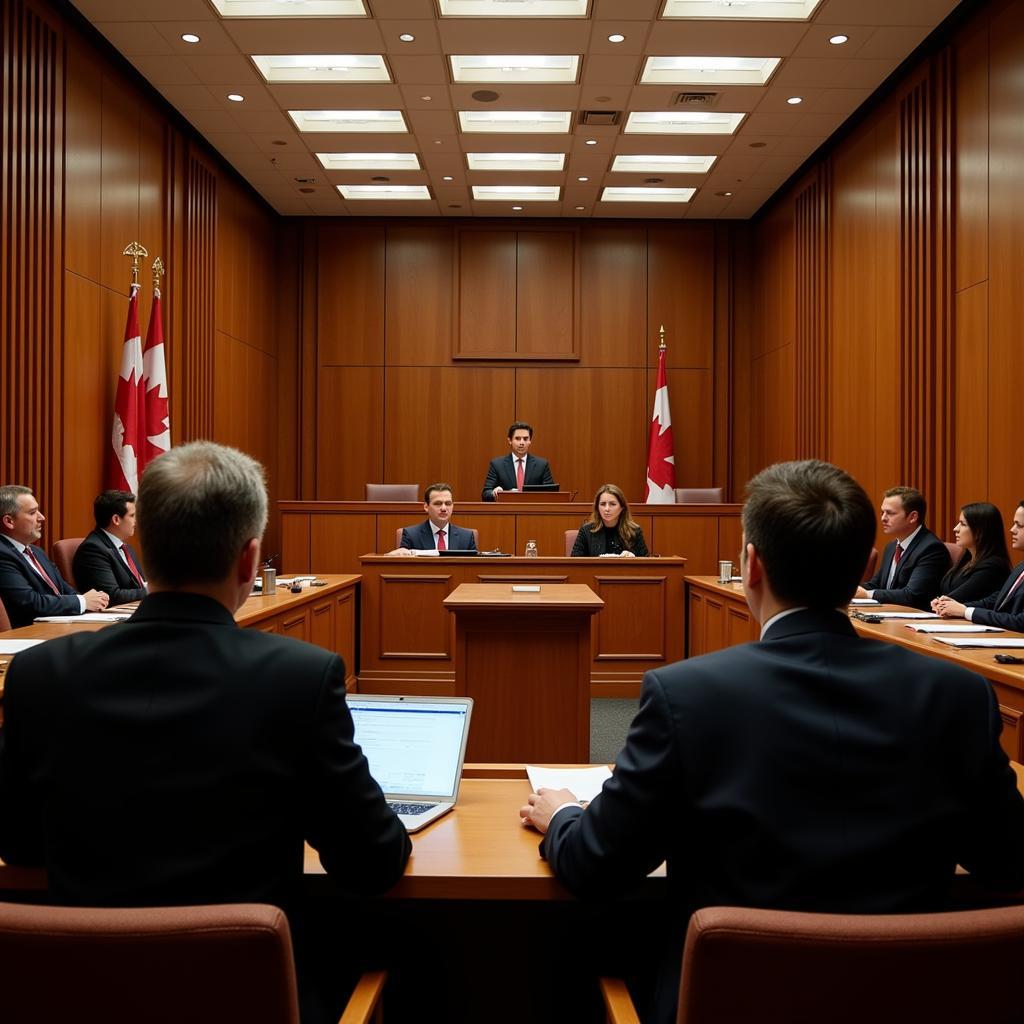The Canadian Law Society stands as a cornerstone of the Canadian legal system, playing a vital role in upholding the integrity and standards of the legal profession. This comprehensive guide delves into the multifaceted aspects of the Canadian Law Society, providing valuable insights for aspiring lawyers, legal professionals, and anyone seeking information about the Canadian legal system.
Understanding the Canadian Law Society’s Role
The Canadian Law Society, often referred to as a bar association in other jurisdictions, serves as the governing body for lawyers in each province and territory. Its primary mandate is to regulate the legal profession and ensure that lawyers adhere to the highest ethical and professional standards.
The Society’s responsibilities encompass a wide range of areas, including:
-
Licensing and Regulation: The Canadian Law Society sets the requirements for becoming a licensed lawyer, including education, articling, and passing bar exams. It also regulates the conduct of lawyers, investigating complaints and imposing disciplinary measures when necessary.
-
Professional Development: The Society provides ongoing professional development opportunities for lawyers to enhance their skills and knowledge throughout their careers. This includes continuing legal education courses, seminars, and conferences.
-
Public Protection: By upholding ethical standards and investigating complaints, the Canadian Law Society safeguards the public from unethical or incompetent legal practices.
-
Advocacy: The Society advocates for the legal profession and the administration of justice on behalf of its members and the public.
The Structure of the Canadian Law Society
Canada has a decentralized legal system, meaning that each province and territory has its own independent Law Society. While they share common goals and functions, each Society operates under its own specific legislation and regulations.
Despite their independent nature, the provincial and territorial Law Societies collaborate through the Federation of Law Societies of Canada. This national organization facilitates communication, coordination, and the development of national standards for the legal profession.
Becoming a Lawyer in Canada: The Law Society’s Role
The journey to becoming a lawyer in Canada is rigorous and demanding, with the Canadian Law Society playing a crucial role in every step of the process. Here’s an overview of the key stages:
-
Obtaining a Law Degree: Aspiring lawyers must complete a Juris Doctor (JD) degree from a Canadian law school accredited by the provincial Law Society.
-
Completing Articling: After graduating from law school, aspiring lawyers must complete a period of articling, typically lasting ten months. Articling involves working under the supervision of a licensed lawyer to gain practical legal experience.
-
Passing Bar Exams: Each province and territory has its own bar exams that assess candidates’ knowledge of the law and their ability to apply it in practice.
-
Call to the Bar: Once a candidate has successfully completed all the requirements, they are “called to the bar” in a formal ceremony and become licensed to practice law in that province or territory.
Public Resources and Support
The Canadian Law Society also provides various resources and support services to the public, including:
-
Referral Services: The Society can connect individuals and businesses with qualified lawyers who practice in specific areas of law.
-
Information on Legal Rights: The Society’s websites often provide information on legal rights and obligations, helping individuals understand their legal standing.
-
Complaints Process: Individuals who have concerns about a lawyer’s conduct can file a complaint with the Law Society.
Conclusion
The Canadian Law Society serves as a cornerstone of the Canadian legal system, upholding the integrity and standards of the legal profession while safeguarding the public interest. From licensing and regulation to professional development and public resources, the Society plays a multifaceted role in shaping the legal landscape of Canada.
Frequently Asked Questions (FAQs)
1. How do I find a lawyer in my area?
You can contact your provincial or territorial Law Society’s referral service. They can provide you with a list of qualified lawyers in your area who practice in the specific area of law you require.
2. What can I do if I have a complaint about a lawyer?
If you believe a lawyer has acted unethically or incompetently, you can file a complaint with the Law Society in the province or territory where the lawyer is licensed.
3. What are the requirements for becoming a lawyer in Canada?
The specific requirements vary slightly by province and territory, but generally include obtaining a law degree from an accredited law school, completing articling, passing bar exams, and meeting character and fitness requirements.
4. How are Law Societies funded?
Law Societies are primarily funded through annual fees paid by their members, who are licensed lawyers. They may also receive funding from other sources, such as investments.
5. What is the role of the Federation of Law Societies of Canada?
The Federation of Law Societies of Canada is a national organization that represents all provincial and territorial Law Societies. It facilitates communication and collaboration among the Societies and works to develop national standards for the legal profession.
For further information and support, explore our other resources or contact immigrant services society of bc for guidance on navigating legal matters.
 A Day in Canadian Court
A Day in Canadian Court
Navigating legal complexities can be challenging. For those seeking additional resources and support, consider exploring our website for a wealth of information on various legal topics.
Remember, understanding your rights and accessing legal assistance when needed are crucial for ensuring a just and equitable society.
Need immediate assistance? Contact our 24/7 helpline:
Phone: 02043854663
Email: [email protected]
Visit us: Khu 34, Bắc Giang, 260000, Việt Nam
Our dedicated team is here to provide support and guidance every step of the way.